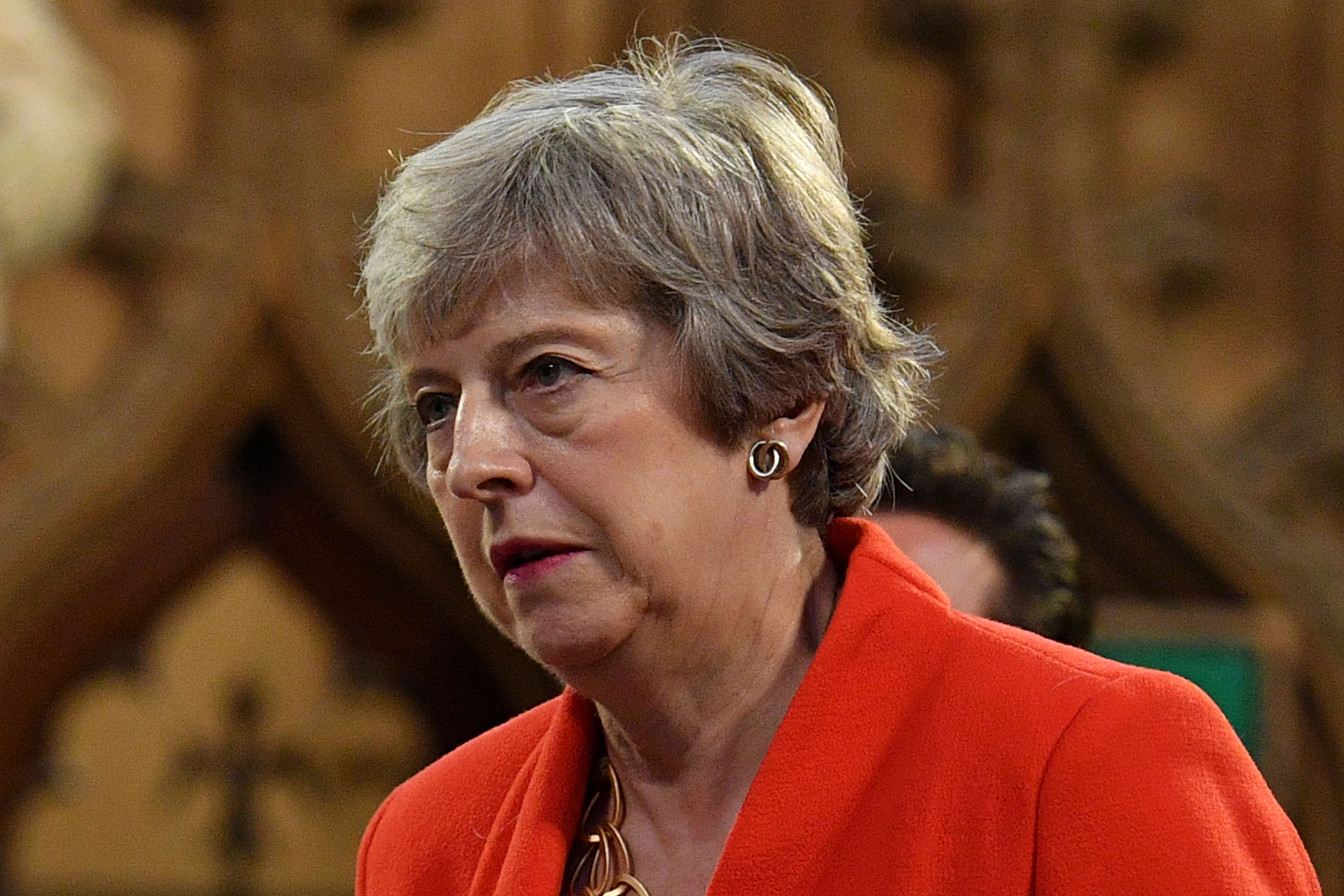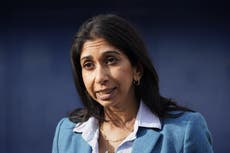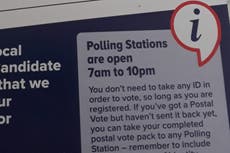Ministers attack small boat ‘asylum shoppers’ as Tories row over migration bill
Suella Braverman doubles down on claim small boats criminals linked to ‘heightened levels of criminality’


Conservative ministers have doubled down on their attacks on small boat migrants – accusing those arriving from across the English Channel of being “asylum shoppers” with “values at odds with our country”.
Home secretary Suella Braverman said those coming to Britain in small boats had “heightened levels of criminality” – including drug dealing and prostitution – but failed to provide any evidence for the claim.
Immigration minister Robert Jenrick said small boat arrivals were “essentially asylum shoppers”, as the Illegal Migration Bill cleared the Commons despite a tough time from Tory MPs concerned by the plan to detain and deport Channel migrants.
Former Tory PM Theresa May warned that the legislation would mean more people in Britain facing modern slavery – condemning government attempts to address the issue as “disastrous” and “a slap in the face”.
Ex-Tory attorney general Sir Geoffrey Cox also launched a scathing attack on the bill – arguing that it hands ministers the power to “deliberately disobey” international law by flouting European Court of Human Rights (ECHR) rulings.
It came as Ms Braverman came under fire for failing to guarantee safety to those expected to flee conflict in Sudan – ruling out safe and legal routes from those in the war-torn country.
Earlier on Wednesday, Ms Braverman claimed on Sky News that Sudanese asylum seekers would have “various” legal ways to reach the UK – saying the UN refugee agency was working in the region.
But she also said Sudanese refugees who arrive in the UK on small boats would be deported – arguing they would have “no good reason” to come across the Channel.
The UN High Commissioner for Refugees rebuked the home secretary, insisting that there is “no mechanism” for refugees to seek asylum safely in the UK through the organisation.
Ms Braverman later ruled out introducing safe routes for asylum seekers from Sudan. “We have no plans to do that. Our focus first and foremost right now … is to support British nationals and their dependents,” she told reporters.

Asked about Mr Jenrick’s comments about small boat migrants threatening to “cannibalise” social cohesion, the home secretary went further and told Sky News: “We are seeing heightened levels of criminality related to the people who’ve come on boats related to drug dealing, exploitation, prostitution.”
But Ms Braverman failed to offer statistical evidence to back her claim. Asked about a lack of any empirical data, she later told reporters: “I consider police chiefs experts in their field and authoritative sources of information.”
Amnesty International accused her of “pouring petrol on a xenophobic and racist fire they themselves have lit”. Labour also condemned Ms Braverman’s comments – with a spokesperson calling it the “sort of invective” that signals that the policies being promoted “have failed”.
Despite enduring a torrid time in the Commons, the Illegal Migration Bill passed at the third reading staged after MPs voted in favour by 289 votes to 230 – a majority 59.
Ministers succeeded in persuading Tory moderates to back down on rebellions over child detention and the opening up of safe and legal asylum routes.
Tory rebel leader Tim Loughton confirmed he would not move a series of amendments to a vote in the Commons after assurances from ministers that there would be strict limitations on the detention of unaccompanied children arriving in small boats.
“We are taking the assurances from the minister on trust,” said Mr Loughton. “We will not continue without a lack of detail when this bill gets to the Lords, but for the moment we are not going to force it to a vote – because I trust the migration minister to do the right thing before this bill finalises its stages.”
The government has promised to publish a report on setting up additional safe and legal asylum routes within six months of the bill becoming law.

But Ms May and former Tory leader Iain Duncan Smith shared their anger over the government’s failure to address their concerns about human trafficking and modern slavery.
Temporary protection against removal from the UK is currently given to suspected victims of modern slavery or human trafficking while their case is considered. But Ms Braverman’s bill removes this protection for those judged to have entered the UK illegally.
Ms May said: “Far from making the bill provisions better for the victims of modern slavery, it makes it worse. The government will be ensuring that more people will stay enslaved … because it will give the slavedrivers, it will give the traffickers, another weapon to hold people in that slavery.”
Former attorney general Sir Geoffrey Cox questioned amendments added to the bill after pressure from right-wing Tory rebels close to Ms Braverman which allows her to override ECHR “rule 39” injunctions blocking deportations. He said it would be “a deliberate breach of our obligations”.
Although the bill was voted through the Commons at the third reading stage after the climbdown from Tory moderates, it is expected to endure a tough time in the Lords.
Robert Buckland, former justice secretary, has said he expected the Lords to push against the attempt to ignore injunctions from EHRC judges in Strasbourg. Crossbench peer Lord Thomas, former Lord Chief Justice, has also warned that peers would try to stop the “symbolic breach of the rule of law”.
Join our commenting forum
Join thought-provoking conversations, follow other Independent readers and see their replies
Comments




Bookmark popover
Removed from bookmarks